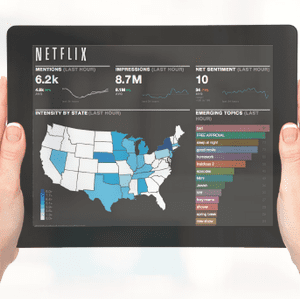Topics
Will Social Kill Professional Marketing?
 By Michael Idinopulos, CMO, PeopleLinx
By Michael Idinopulos, CMO, PeopleLinx
We’ve seen social disrupt a lot of professions: Journalism, retail, telephony, encyclopedias, art photography, recorded music, classified advertising, transportation, real estate and hospitality.
Is professional marketing next?
Not so long ago, marketing departments controlled their companies’ access to the media. Television, radio, print media, and even Internet ads were managed by professional marketers on behalf of their companies. The professional marketer was the gatekeeper to the media.
Social networking has changed all that.
Everyone from the CEO to the night watchman can use social networks to represent the company, its brand and its offerings. All it takes is a LinkedIn account. Or a Twitter handle. Or a blog. Or a Facebook page. Or Instagram, Pinterest, or a host of other social networks.
Employees routinely bypass their marketing departments and communicate directly to the market. Every time an employee tweets a company announcement, shares a white paper on LinkedIn, or posts a product photo on Pinterest, that action chips away at marketing’s traditional role as the corporate mouthpiece.
It’s happening in companies all over the world, millions of times a day.
Follow this trend out and you’ll envision a world in which company communications don’t go through the marketing department. While marketing may continue to manage “mass media” properties such as Super Bowl commercials or Times Square billboards, the real action will be in the social network trenches, where individual employees will engage in hand-to-hand marketing with their connections.
Arguably, we already live in that world. The 2013 Nielsen Global Trust In Advertising And Brand Messages found that personal recommendations generate roughly twice the trust of brand advertising channels. Even when marketers speak, the market ignores them.
When social networks do the marketing, what do professional marketers do?
They evolve from player to coach.
As a corporate function, marketing will no longer be defined by its exclusive access to the media and the market. Instead, it will be defined by its ability to help the rest of the company get the message out.
Like all players who become coaches, marketers will focus on the strategic aspects of the game. They’ll define market segments, distill value propositions, articulate competitive differentiation and analyze pricing. They’ll invest in content and creative. They’ll write white papers and produce infographics, shoot videos and write web copy.
When it comes to execution, marketing will pass the ball to the rest of the organization and start coaching. They’ll show senior execs how to blog. They’ll empower line employees to tweet. They’ll coordinate the messaging that shows up on employee’s LinkedIn profiles.
Of course, they’ll do what good marketers already do: Measure. The difference is that they won’t just be measuring their own activity; they’ll be measuring the entire company.
The outcomes they’ll measure will be familiar ones. Brand awareness, web traffic, leads, conversions and churn will always be marketing’s currency, regardless of who is generating them.
Social won’t kill the marketing profession, but it will force marketing to up its game. In order to remain relevant in a world where everyone can market, marketers need to focus on the activity that belongs uniquely and essentially to them: Articulating the company’s unique value proposition and communicating it to others.
Michael Idinopulos is Chief Marketing Officer of PeopleLinx. Idinopulos led one of the earliest enterprise-scale deployments of blogs, wikis, and social networking. Michael’s TEDx talk, titled: “Mr. Manager, Tear Down These (Digital) Walls,” is available on YouTube. Idinopulos holds a B.A. from the University of Chicago and a Ph.D. in philosophy from U.C. Berkeley.



![What People Share On Social Networks [Infographic]](https://channelmarketerreport.com/wp-content/uploads/2014/08/Screen-Shot-2014-08-15-at-2.22.13-PM-300x300.png)


![Going Viral [Infographic]](https://channelmarketerreport.com/wp-content/uploads/2014/10/Viral-Marketing-infographic-300x300.jpg)







